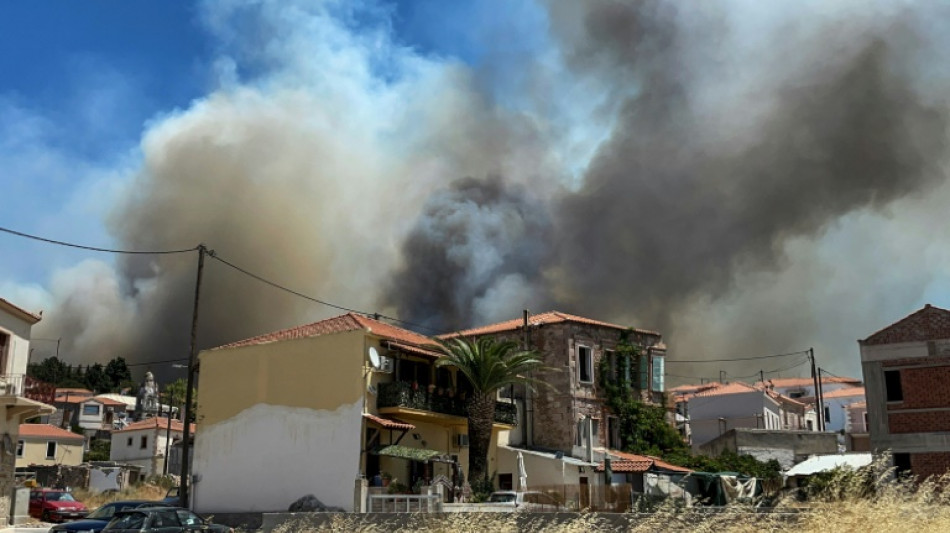

Greece, California battle fierce wildfires amid heatwaves
Greece on Sunday battled four major wildfires that have forced hundreds to evacuate, as soaring temperatures there and in Spain raised fears of more blazes.
The United States meanwhile sweltered in scorching heat set to exceed already record-setting temperatures, worsening an out-of-control wildfire in central California.
Scientists say human-induced climate change is amplifying extreme weather -- including the heatwaves, droughts and floods seen in several parts of the planet in recent weeks -- and say these events will become more frequent and more intense.
The international community has agreed that climate change poses an existential threat to human systems and the natural world.
Earth's average temperature has warmed just over 1.1 degrees Celsius (34 degrees Fahrenheit) since the industrial era and the United Nations says it is currently on track to warm some 2.7C this century.
Greece is in the grip of a heatwave that began on Saturday and is expected to last 10 days. Temperatures were set to rise to 42C in some regions.
Fires raged in the north, east and south of the country, including on the tourist island of Lesbos, where around 200 people were ordered to leave the village of Vryssa on Sunday to escape the flames.
- Danger to people and wildlife -
Elderly women left the village carrying a few possessions in plastic bags, as thick smoke engulfed the first houses.
On Saturday residents and tourists were told to leave the island's beach village of Vatera.
In the northeastern region of Evros, hundreds of firefighters battled a wildfire that has been ablaze for four days in Dadia National Park, known for its black vulture colony.
Evros governor Dimitris Petrovits told Athens News Agency the authorities were doing all they could to protect locals and treat injured wildlife.
In the south, a fire in the Peloponnese caused the evacuation of three villages and a children's summer camp, while on the island of Crete a fire was raging inside a ravine.
In Spain, a heatwave that has persisted for two weeks was expected to produce record-high temperatures of 45C in the southern region of Cordoba.
This part of Andalucia registered Spain's highest-ever temperature -- 47.7C -- only last year.
The national weather office said the relentless heatwave since July 9 and the lack of rain since the start of the year across the Iberian Peninsula meant there was an "extreme" risk of fires.
In all, fires in France, Spain and Portugal have already burned more land so far this year than was destroyed by flames in all of 2021. The area -- some 517,881 hectares (1.28 million acres) -- is equivalent to the size of Trinidad and Tobago.
The World Health Organization said on Friday Europe's heatwave had led to "more than 1,700 needless deaths... in Spain and Portugal alone".
- Wasting energy is 'absurd' -
In the United States, where President Joe Biden warned this week that climate change represented a "clear and present danger", tinderbox conditions in California sparked a fire on Friday near the Yosemite National Park and its giant sequoia trees.
The fire -- described as "explosive" by officials -- spread from 250 to 4,800 hectares within 24 hours and had consumed more than 5,750 hectares by early Sunday, the California Department of Forestry and Fire Protection said.
Evidence of global warming could be seen elsewhere in the country, where 85 million people in more than a dozen states were under a weekend heat advisory.
A heat emergency was in effect for cities up and down the northeast coast, from Boston to Philadelphia to Washington.
In France, the government announced on Sunday it was bringing in rules to curb energy wastage, which adds needlessly to the greenhouse gas emissions that fuel climate change.
Leaving the doors open when the air conditioning is on leads to "20 percent more consumption and ... it's absurd," she said.
H.Bastin--RTC



